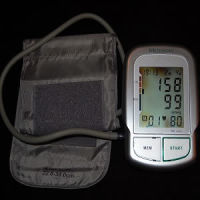Findings from a new study show that low sodium intake may be harmful. Results indicate that populationwide sodium reduction is ill-advised. Only hypertensives with high sodium consumption should be advised to do so.
These findings are based on a pooled analysis involving more than 130,000 people from 49 countries. They reveal that compared with average sodium intake (3 to 6 g/day), low sodium intake (<3 g/day) was associated with an increased risk of cardiovascular events and death regardless of whether the patient had hypertension or not.
In contrast, high sodium intake (>6 g/day) was associated with increased risk only in hypertensive patients.
The study was led by Dr Andrew Mente of McMaster University, Hamilton, ON, Canada.
"The message is that populationwide sodium reduction is probably ill-advised, and we need to simply identify the individuals who have both hypertension and consume high amounts of sodium and get them to reduce their sodium intake to moderate levels. That would be the ideal approach," Mente said.
However, the study has had a dramatic response. In a statement published in Lancet, American Heart Association (AHA) president Dr Mark Creager (Dartmouth-Hitchcock Medical Center, Lebanon, NH) has expressed concern over the study recommendations and feels that this may reverse the progress that has been made so far in modifying dietary sodium intake and of reducing risk of high blood pressure. Similarly,
AHA past-president Dr Elliott Antman (Brigham & Women's Hospital, Boston, MA) has also advised healthcare providers to disregard this study and has criticised it on the grounds that the results are based on a single urine test.
"This is a flawed study, and you shouldn't use it to inform yourself about how you're going to eat. The AHA has reviewed the totality of the evidence and we continue to maintain that no more than 1500 mg of sodium a day is best for ideal heart health."
The authors of the study maintain that the use of one overnight urine sample has been validated against the gold standard of 24-hour urine collection and that the analyses has also been adjusted for day-to-day variability.
Dr Guy De Backer (Ghent University, Belgium says that this study may be of interest to researchers but should have little impact on public health in Europe.
"The conclusion that salt-intake reduction should be recommended only to individuals with hypertension and a high dietary salt intake is in my view not acceptable to European communities, where the actual salt intake is on average between 8 and 10 g/day."
Source: Medscape
Image Credit: Wikimedia Commons



























